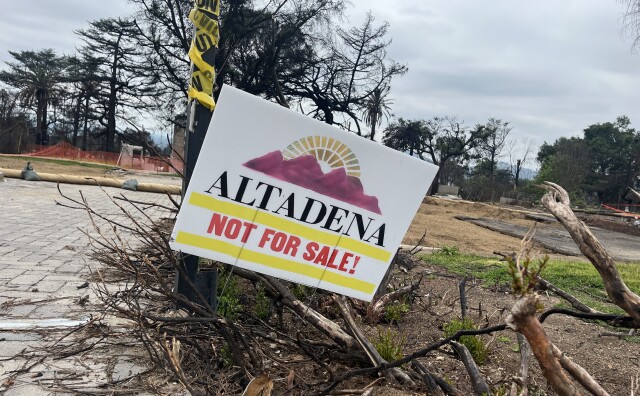With our free press under threat and federal funding for public media gone, your support matters more than ever. Help keep the LAist newsroom strong, become a monthly member or increase your support today.
This archival content was written, edited, and published prior to LAist's acquisition by its current owner, Southern California Public Radio ("SCPR"). Content, such as language choice and subject matter, in archival articles therefore may not align with SCPR's current editorial standards. To learn more about those standards and why we make this distinction, please click here.
Personal Responsibility

A trend is finally catching on that holds employees personally responsible for their health care premiums. Basically, the healthier you are, the less you’ll pay. Car insurance has worked this way for decades. Get a speeding ticket and points are added to your record, and insurance carriers can justify a premium increase. An increase that’s not absorbed by everyone else who drives.
There’s always been a lingering question about health care. Why should a healthy person pay more to subsidize someone who smokes, who’s obese or who’s an alcoholic? Is health care really an equal, universal right? Does anyone need to bear personal accountability for anything anymore? The fundamental problem is that the bad habits of one group creates significant financial consequences for others.
The National Coalition on Health Care states that health care spending will climb to over $2 trillion this year. That’s more than the gross domestic product of many countries (for example, almost 8 times that of Switzerland). Over 60% of Americans are overweight or obese, and fast food restaurants dwell at every corner. LA Councilwoman Jan Perry is even trying to stop new fast food restaurants from opening in South LA for two years to address related health problems. The reality of American life is that fatty foods are cheap, easy and convenient and exercise can be hard to come by between our longer work schedules and increasingly busier personal lives. Is that the reality or just an excuse?
With anything controversial, and believe me, this reeks of controversy, lawsuits won't be far behind. However, they might not be as easy to file as you think. The National Workrights Institute feels that employers are taking an unfair approach to "eliminate" expensive employees. But this is a capitalistic society, after all. Why should an employer suffer exorbitant costs as a result of their employees' unhealthy lifestyles? Our trusty federal government passed regulations in July to address employers' legal concerns, detailing how these "wellness programs" differentiate themselves from illegal discrimination based on the Health Insurance Portability and Accountability Act. One stipulation is that penalties and rewards cannot exceed 20% of an employee's health care cost. Another takes into account pre-existing health factors that sometimes lead to obesity or high blood pressure, etc. ("no fault of their own" factors).
The one thing a lot people overlook about this is the bottom line, but not for financial departments. I'm talking about a person's bottom line...The state of their health. Whether you think it's a good idea or unfair or bordering on tyranny, the ultimate drive is to make people healthier. Employers would much rather have healthy workers than unhealthy workers paying surcharges. And when you're healthier, you feel better, you live longer, you're more productive and you won't require multiple bypasses. Isn't that a good thing?
photo by una cierta mirada via Flickr
At LAist, we believe in journalism without censorship and the right of a free press to speak truth to those in power. Our hard-hitting watchdog reporting on local government, climate, and the ongoing housing and homelessness crisis is trustworthy, independent and freely accessible to everyone thanks to the support of readers like you.
But the game has changed: Congress voted to eliminate funding for public media across the country. Here at LAist that means a loss of $1.7 million in our budget every year. We want to assure you that despite growing threats to free press and free speech, LAist will remain a voice you know and trust. Speaking frankly, the amount of reader support we receive will help determine how strong of a newsroom we are going forward to cover the important news in our community.
We’re asking you to stand up for independent reporting that will not be silenced. With more individuals like you supporting this public service, we can continue to provide essential coverage for Southern Californians that you can’t find anywhere else. Become a monthly member today to help sustain this mission.
Thank you for your generous support and belief in the value of independent news.

-
The Palisades Fire erupted on Jan. 7 and went on to kill 12 people and destroy more than 6,800 homes and buildings.
-
People moving to Los Angeles are regularly baffled by the region’s refrigerator-less apartments. They’ll soon be a thing of the past.
-
Experts say students shouldn't readily forgo federal aid. But a California-only program may be a good alternative in some cases.
-
Distrito Catorce’s Guillermo Piñon says the team no longer reflects his community. A new mural will honor local leaders instead.
-
The program is for customers in communities that may not be able to afford turf removal or water-saving upgrades.
-
More than half of sales through September have been to corporate developers. Grassroots community efforts continue to work to combat the trend.







